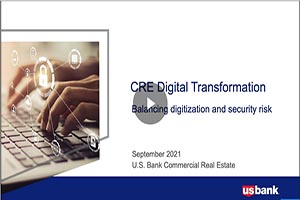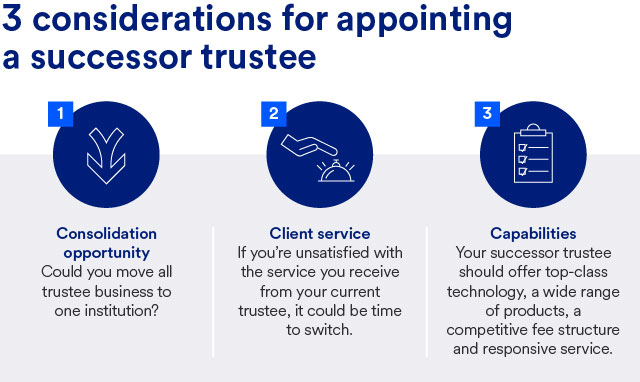Benefits of appointing a successor trustee
Putting in place a successor trustee presents a variety of advantages.
“Appointing a successor trustee can give bond issuers access to multiple product options and state-of-the-art technology built for your business,” says Karen Lei, vice president and relationship manager at U.S. Bank Global Corporate Trust. “A successor trustee may offer an online client portal where issuers can see project fund balances in real time and have access to customized reports, statements, deal documents and more.”
For the best results, it’s important to find a successor trustee that’s flexible and agile enough to adapt to ongoing changes in the financial environment. They should have a proven track record of reliability and integrity in their dealings. “Ideally, you want a team, like ours here at U.S. Bank, that’s committed to maintaining open lines of communication with all stakeholders and deal parties,” says Lei.
Consolidating business with a successor trustee can also help reduce fraud by enabling automatic transfers of debt service funds instead of using an external wire transfer. “With millions of dollars at a time being transferred, fraud is a growing concern among bond issuers, making this a key factor in deciding to appoint a successor trustee,” says Knutson.



































